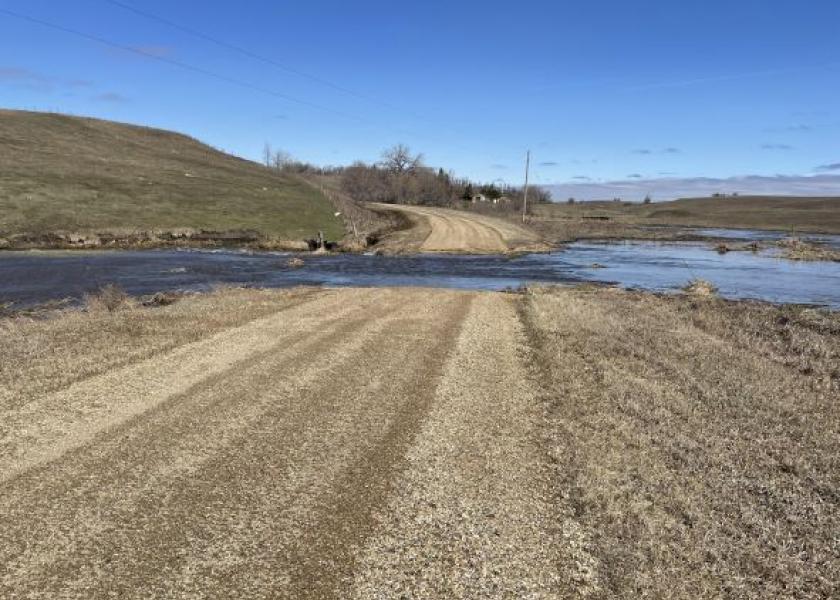Flooding Increases Risk of Anthrax

After late snowfall and recent rain, some areas of the northern Plains have experienced flooding. While the moisture is a welcome respite for many from the dry weather of 2021, in areas with a history of anthrax, flood waters may increase the risk of exposure to anthrax spores.
Erosion that occurs with flooding increases the chance that animals will ingest the spores of anthrax, warns NDSU Extension veterinarian, Dr. Gerald Stokka.
Anthrax is a disease in cattle, humans and other species caused by a bacteria known as Bacillus anthracis. This bacteria has a special survival mechanism called spore formation. This characteristic allows the bacteria to produce very hardy spores with a high survival rate.
The spores can survive for years under the right conditions. When these spores come into contact with susceptible animals, they can “hatch” and infect cattle, resulting in disease and death.
Often the only initial signs of anthrax infection are finding dead cattle. Cattle can die without signs of illness for a number of reasons, including lightning strikes, clostridial infections and toxicities, but anthrax should always be considered, according to Stokka.
“If the diagnosis of anthrax is suspected, your veterinarian may choose not to perform a necropsy,” says Stokka. “Instead, your veterinarian will collect blood and submit for a test to confirm the diagnosis. If confirmed, then vaccination needs to be implemented as quickly as possible.”
Because anthrax is a reportable disease, details on the use of the vaccine should be coordinated through the office of the state veterinarian. It is relatively safe and provides effective protection on most species of livestock.
The commercial vaccine available is a live attenuated (non-disease-causing) spore vaccine. The dose is 1 cc administered subcutaneously in the neck region. All adult cattle and calves should be administered the vaccine, and treatment with antibiotics should be withheld because it may interfere with the immune response. However, when faced with an outbreak situation, administering an antibiotic and a vaccine concurrently has been effective. Consult your local veterinarian for a recommendation.
“Consider removing all cattle from the pasture where anthrax deaths are suspected because spores present can infect the remaining animals,” Stokka advises.
Also, anthrax carries a risk to humans, so take care to not disturb the carcass. The recommended method of disposal is to burn the carcass and soil on which the carcass was found after placing them in a trench dug in the immediate area of the death.
For more information, visit the NDSU Extension publication “Anthrax”







